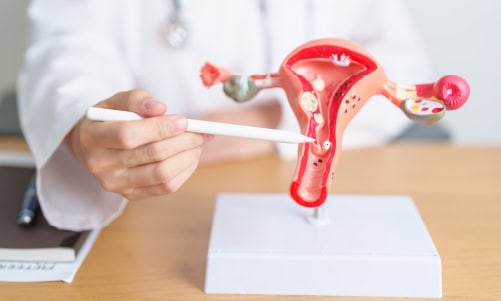Hysterectomy is a surgical procedure that removes the uterus, often performed for various medical reasons such as treating uterine fibroids, endometriosis, or chronic pelvic pain. In this blog, we'll explore the intricacies of hysterectomy and its implications.
If you're considering a hysterectomy, reach out to us, or book a direct appointment with our gynaecologist. At the CK Birla Hospital, we understand the physical and emotional aspects of undergoing a hysterectomy. Our team of experts is dedicated to providing compassionate care, advanced surgical techniques, and comprehensive support.

Reasons for Hysterectomy:
The cost of a hysterectomy varies as per the specific type advised by healthcare provider, such as:
The cost can also vary widely depending on several factors, including the location, the extent of the procedure, the surgeon’s experience, and the hospital’s pricing structure.
To get an explicit estimate for the cost of a hysterectomy at the CK Birla Hospital, contact the hospital directly. Additionally, you can consult with our board-certified gynaecologist to discuss your specific needs and receive a personalised quote for the procedure.
Delaying or improperly performed hysterectomy can lead to various complications, including:
Timely and appropriate evaluation and intervention are crucial to minimise these potential complications.
The diagnostic process typically involves:
Diagnosis guides surgery type (partial, total, radical) and approach (abdominal, vaginal, laparoscopic) to address conditions, minimise risks, and preserve fertility.
Generally, the average cost of a Hysterectomy (Uterus Removal Surgery) in Delhi is approximately Rs. 1 Lakh, depending upon numerous factors, such as the surgeon’s experience, location, length of the treatment, and the hospital’s price structure.
When the uterus is removed through a procedure called a hysterectomy, a person can no longer become pregnant and may experience relief from certain gynaecological conditions like fibroids or endometriosis. Discuss with your doctor about hormone replacement therapy and other changes post-surgery.
Typically, 6-8 weeks of recovery is recommended, but this varies based on individual health and the type of surgery.